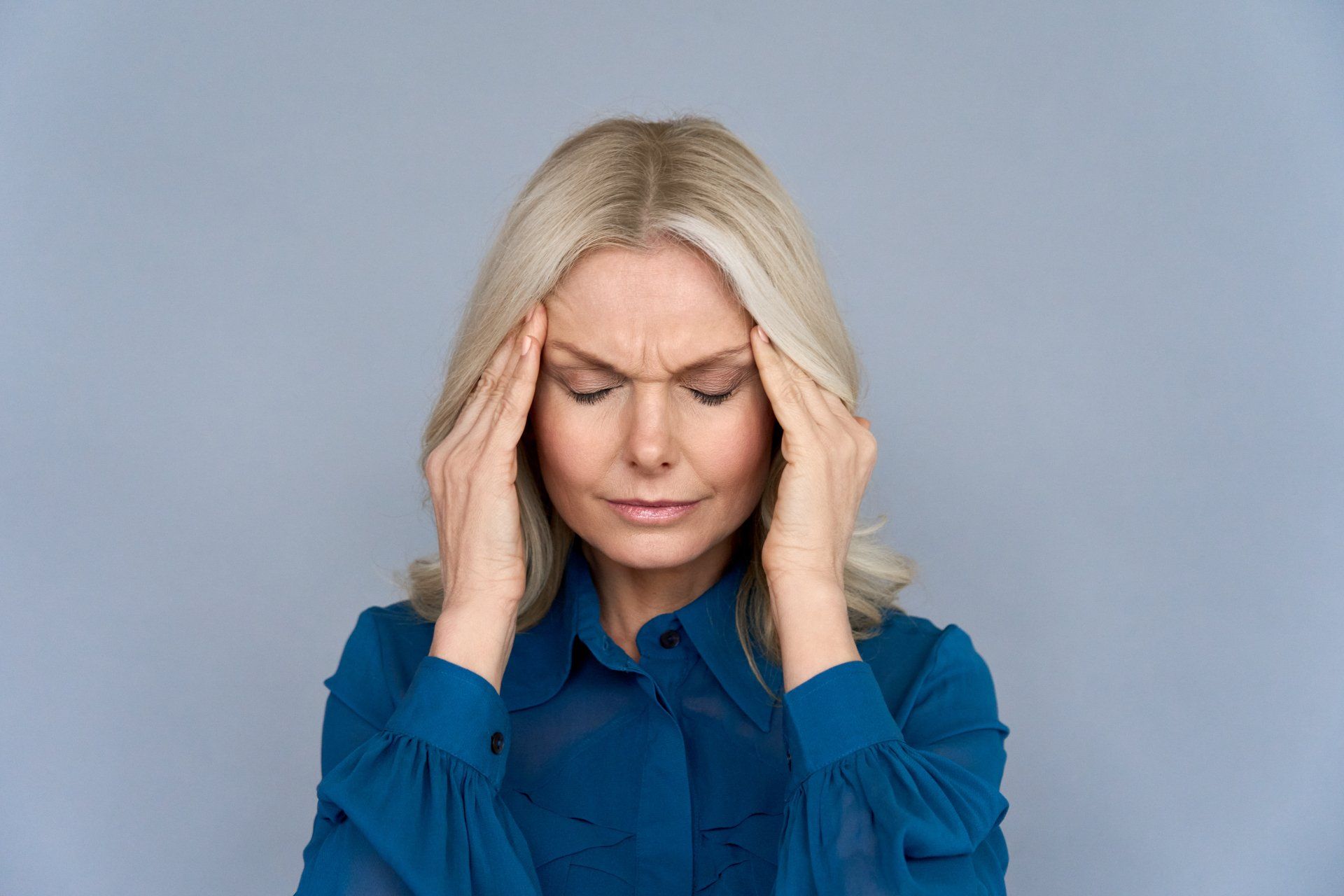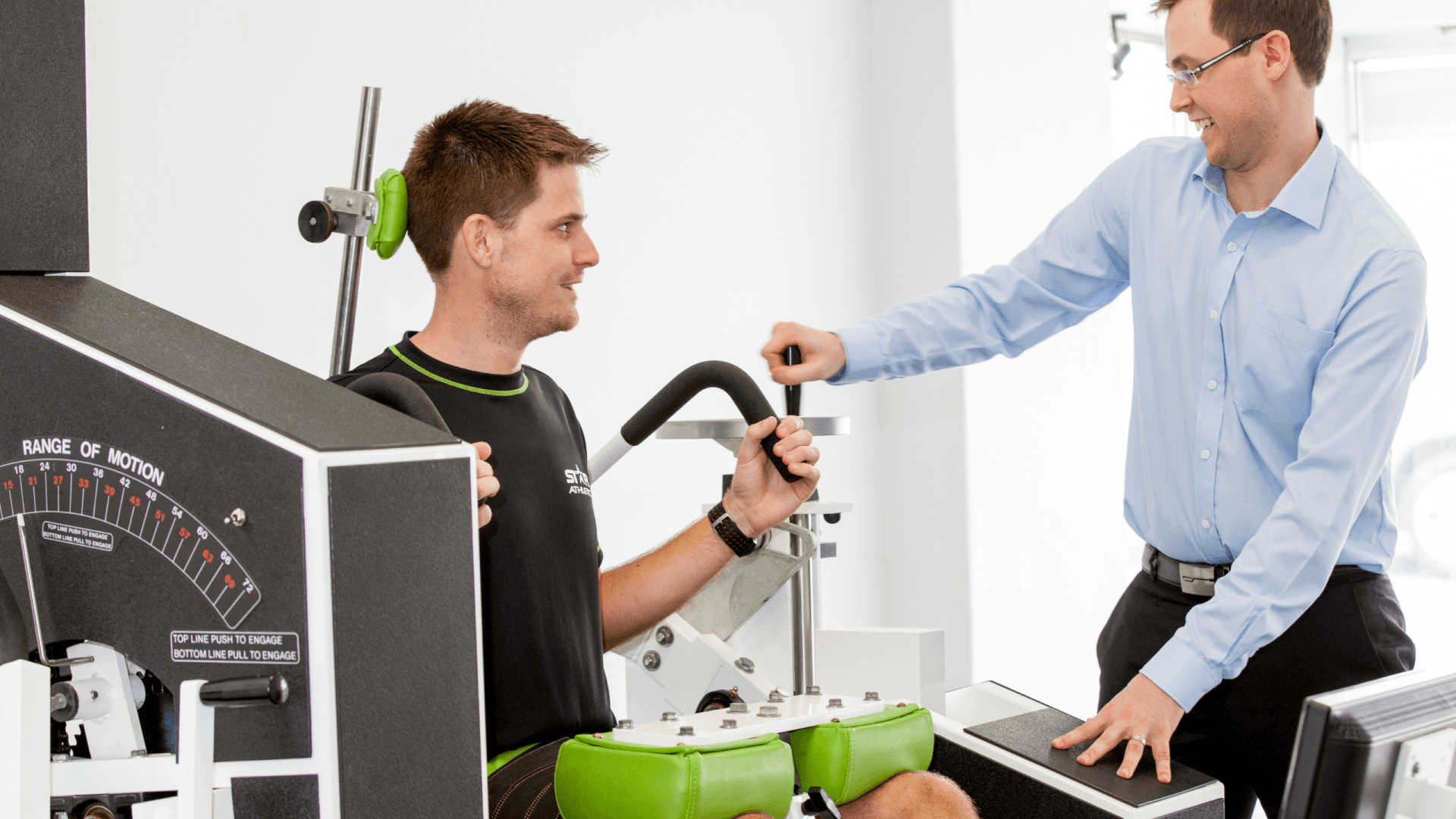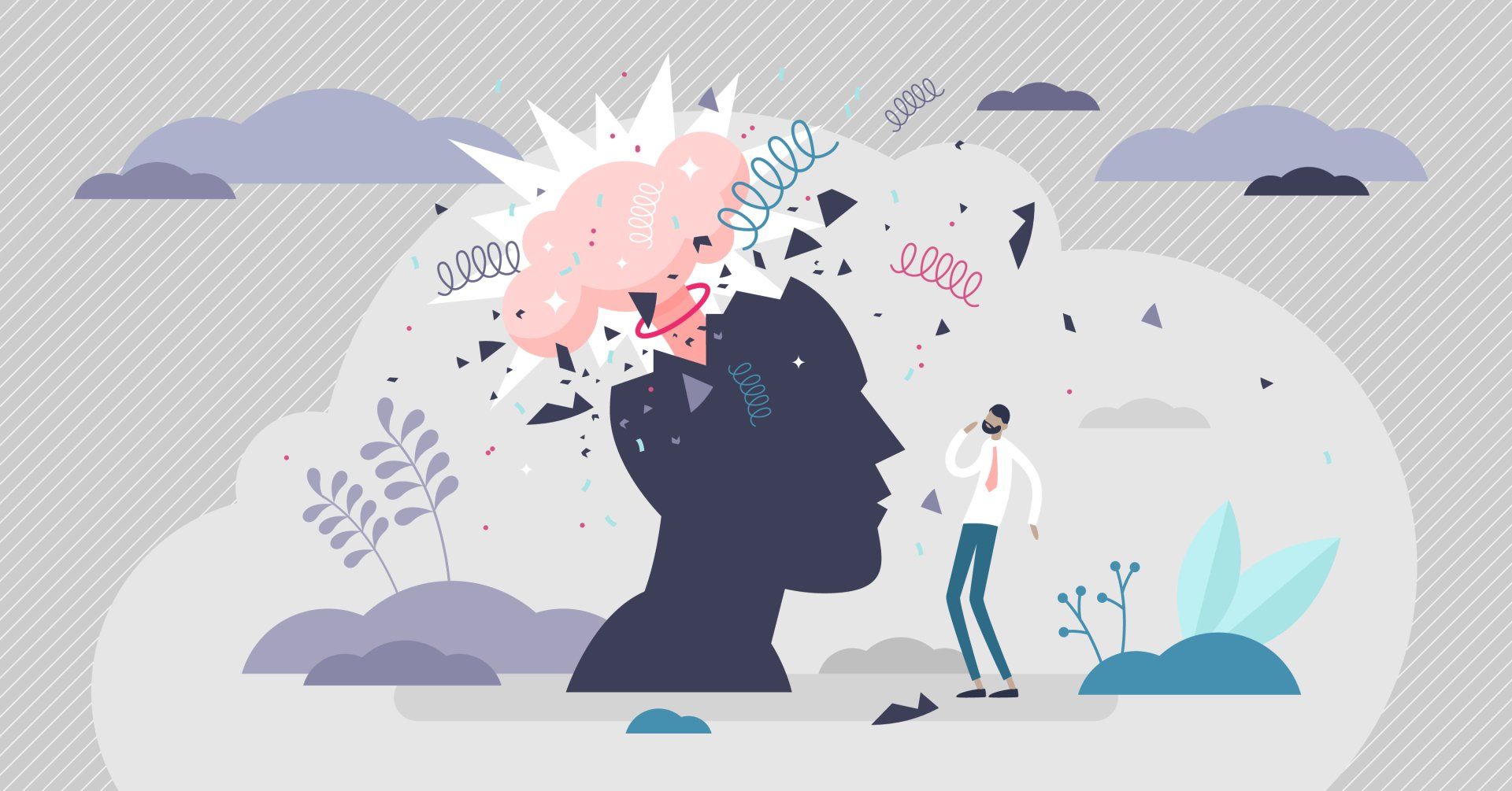National Pain Week 2022
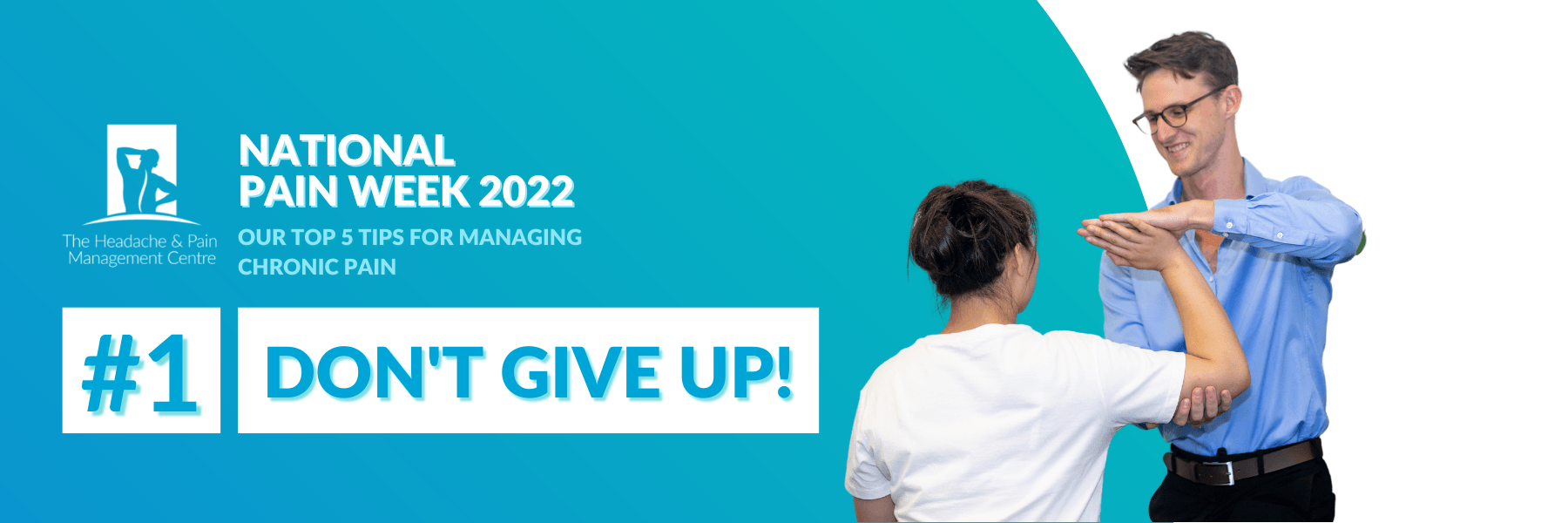
Tip #1 - Don't Give Up!
Sometimes hearing the words ‘don’t give up’ can be daunting. It’s often so much easier said than done, and for some it can feel like the person saying it doesn’t have any idea what you’re actually going through…
Dealing with Chronic Pain is extremely tough, and extremely hard. There is no doubt everyone has good days and bad days. However, from both a mental-health perspective and clinical perspective - it is SO important to not give up! After all, there’s a reason why it’s our number one tip!
Having negative thoughts can be really harmful, and examples of phrases we often hear include:
❌ I am never going to get better
❌ I can’t do this
❌ There’s nothing I can do
❌ I am wasting my time
❌ I am getting worse
Studies have found that having a negative mindset can actually make your pain WORSE.
So, one of the best ways to manage your pain in a more controlled and beneficial way is to change these negative thoughts into positive affirmations.
Here are some phrases you should not only tell yourself, but believe within yourself:
✔️ I am strong enough to work through my pain
✔️ My pain does not define me
✔️ I will be patient and kind to myself
✔️ I can get through this
✔️ I am surrounded by people who want to help
It’s also really great to think about how far you have come since you started. What we often find is that patients don’t feel like they have made any progress at all when they’re having a bad day or a flare up. However, it is so important to recognise and compare your growth to when you began, because you’ll soon realise you’ve made incredible changes and progress.
A simple reminder - if you have a bad day, it does not undo all the good days that preceded it.
Engage in positive affirmations, continue to keep going and never give up. 🙌
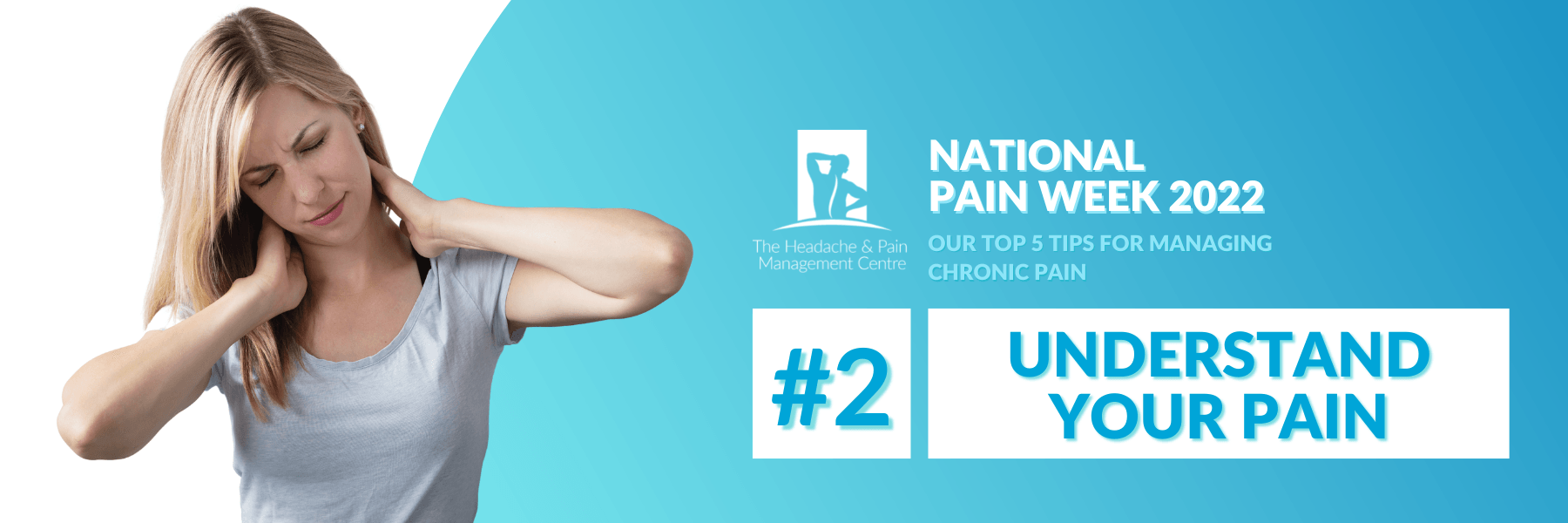
Tip #2 - Understand Your Pain
Pain is different for everybody, the way it presents, the way it feels, the severity… no two people share the same experience of pain.
Having a deep understanding of how pain works, and how it relates to you specifically is extremely beneficial in managing your chronic pain.
Firstly, here’s a quick understanding of how pain works….
Pain is an output provided by your brain.
Your brain receives a signal and must make a decision. Is this dangerous or not dangerous? If your brain concludes that, based on the signal and, all the OTHER signals that hit your brain at the same time (ie. visual input, sounds, smells, contexts, memories, feelings), that it’s dangerous - it will give you pain. 😱
Your brain is doing this to ‘protect’ you, so that you stop doing what it is, that it’s perceiving as dangerous. For Chronic pain, the reality is that it’s not dangerous…
So, the key during any chronic pain treatment is to realise that improvement comes by gradually challenging your system to "reacclimatise" to a more normal response.
Knowing that the brain does this is crucial in your recovery and rehabilitation of your pain condition!
Secondly, if you don’t have this understanding of pain as explained above, you may start to think, or draw conclusions as what’s causing your pain that isn’t exactly true…
Examples of this include:
🔹 Thinking your pain is caused by tissue damage, when there isn’t any physical damage
🔹 Thinking your hormones are causing your headaches, when it could be signals from your neck joints
🔹 Thinking your disc degeneration is causing your back pain, when it could be dysfunction in your muscles
This can lead to a path of treatment, that’s not treating the actual cause of the pain, and therefore a reason why your pain may be persisting!
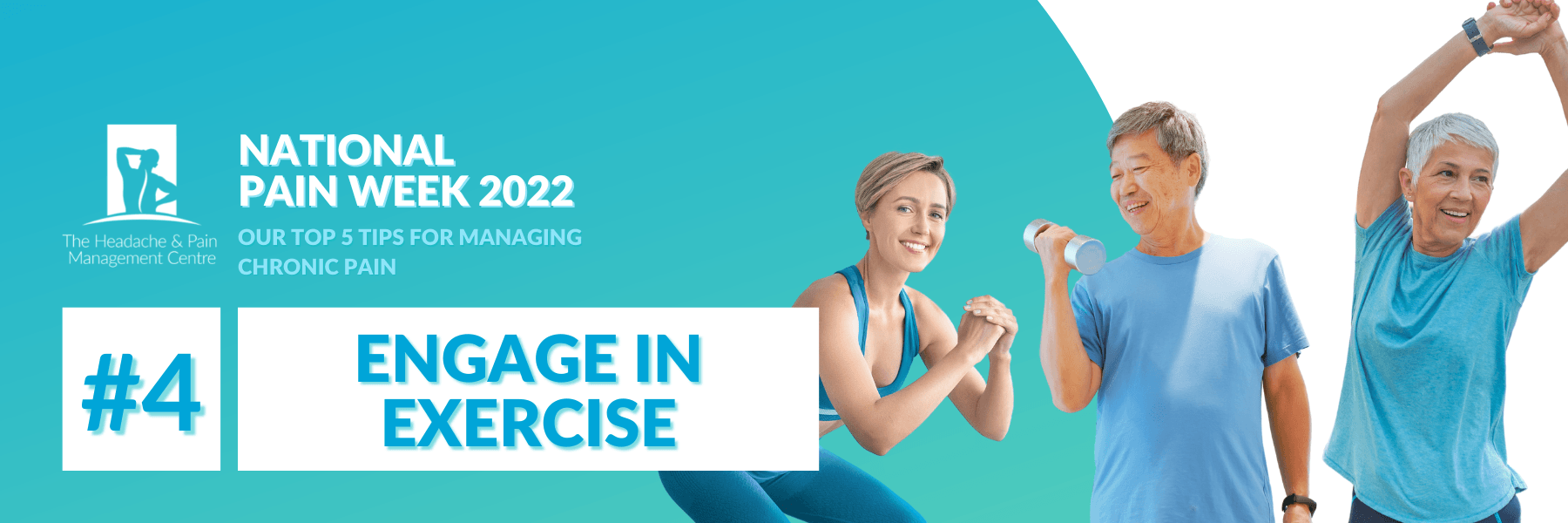
Tip #3 - Engage in Exercise
Exercise, exercise, exercise… we wouldn’t be a health professional if we didn’t encourage exercise, right!?
You’re probably sick of hearing it, how important it is and why you should be doing more… But we wouldn’t be saying it if it weren’t true!
This tip is a little different though, we want to encourage you to do some sort of physical exercise that you ENJOY.
Often we hear patients who’ve been to other places, and they’ve left their appointment with a book full of exercises that they’re expected to do. However, if the expectations of the physio and realities of the patient aren’t aligned, it’s going to cause more issues than it does solving the initial problem.
Majority of time in these cases, the patient will build a resistance to wanting to complete the exercise, even the idea of doing the exercise will start to become daunting.
For those who have long term, Chronic Pain conditions – we highly recommended doing some form of exercise. Exercise that you GENUINELY ENJOY DOING!
If you enjoy it, you’ll prioritise it, you’ll make time for it and you’ll do it. Even if this exercise is not the chosen or prescribed exercise, it will be far better than doing nothing at all.
Not only will it help your joints, nerves, and muscles, but your mental well-being will improve greatly. You’ll have better function, better sleep, better brain health… the benefits are infinite…
Find what it is you enjoy. Here’s a short list of different ways you can start including physical activity into your routine:
🚶♂️ Walking (Maybe take your dog if you have one, or you can jump on a treadmill)
🚲 Biking (There’s some really great trails in the city if you live nearby and have a bike!)
🏊 Water Sports (Swimming or aerobics)
🤸 Pilates or Yoga (Can do it with friends in a class or online)
🏏 Playing sport (Join a local team or play for fun with your family and friends)
There is something for everyone, no matter your age or skill…
Check with your GP or health professional before trying a new exercise, and focus on being consistent rather than over doing it!
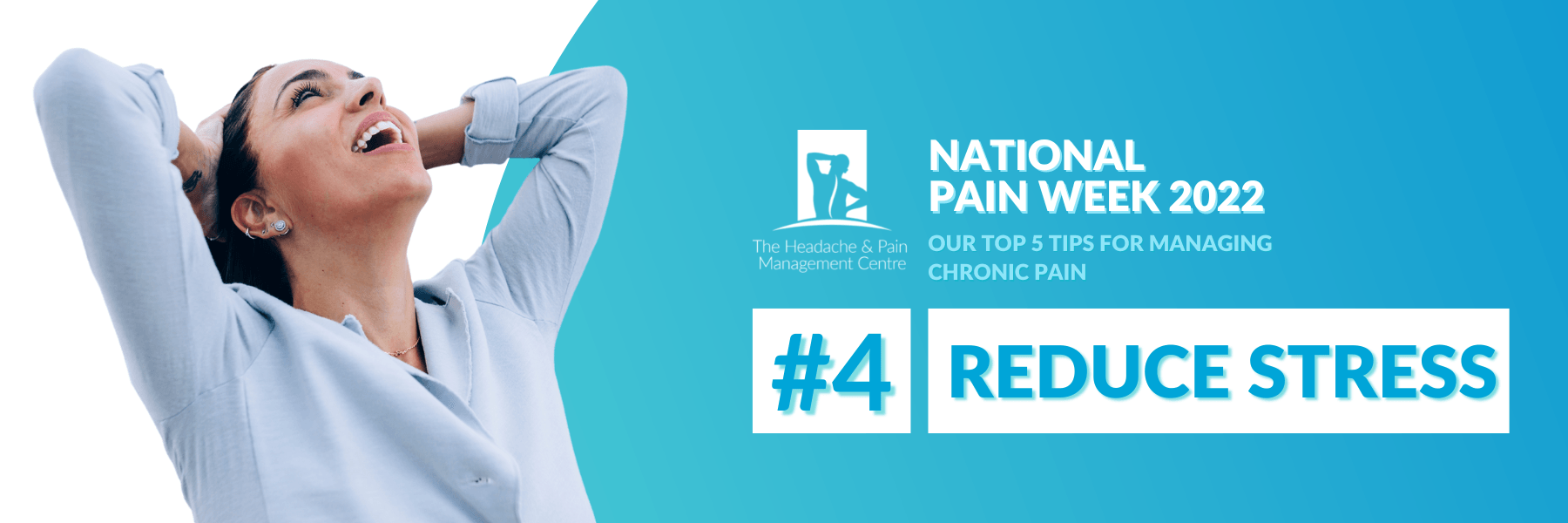
Tip #4 - Reduce Stress
Living with Chronic Pain is stressful, it interferes with your livelihood. But what about external stress? Can it cause your Chronic Pain to worsen?
It sure can – and here’s how!
According to HealthDirect,
“Stress is a common and normal physical response to challenging or new situations. When you are stressed, your body releases stress hormones such as adrenaline. This brings on physical changes in your body, which help you respond to the stressful situation”
Many of these hormones and neurotransmitters can increase the sensitivity of the nervous system, which results in the experience of pain.
External stressors that may trigger your pain can include:
🔸 Financial hardship
🔸 Relationship issues
🔸 Work issues & working too much
🔸 Daily hassles
These factors link to the onset, exacerbation, and attenuation of the pain problem.
What can you do to help reduce external stressors, or to manage your stress in a way so that it does not aggravate your pain?
🔹 Getting a good sleep, and enough of it, every night
🔹 Eating a balanced diet
🔹 Being active and moving your body
🔹 Slowing down your breathing
It’s really important to have a health professional who you trust and are comfortable to talk to regarding your emotional states. If the clinician is aware of any external stressors you are facing, they can explain in a deeper context what it means and what you can do about it, specific to your pain condition and circumstances.
It can be really hard to reduce your stress levels, especially if you live a very busy life or have important responsibilities. Take time for yourself and focus on your health, as its just as important!
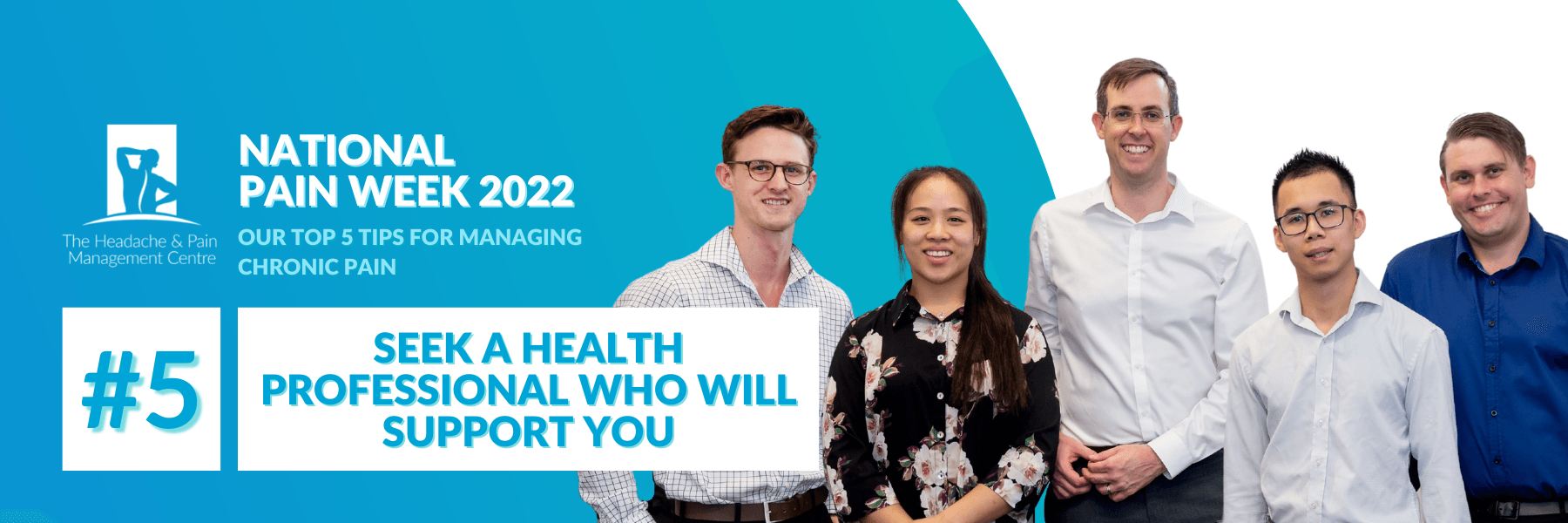
Lastly, Tip #5 - Seek a Health Professional who will support you!
When you are suffering with Chronic Pain, you need someone in your corner to help you along the way. It’s not going to be a quick fix and more often than not, the journey to answers and relief is as debilitating as the pain itself.
If this is you, you are not alone… According to Chronic Pain Australia, 3.4 million Australians are affected by Chronic Pain, and only 1 out of 100 people will receive multidisciplinary care.
To help you get help, here’s some things you should be looking for when choosing a health professional:
🔹 They know what they’re doing.
A health professional who focuses on a specific area of specialty should be expected to have a higher degree of knowledge and experience treating your condition.
🔹 They stay up to date with new research and findings.
Unfortunately, there is several practitioners who are somewhat ‘stuck in their ways’ and don’t ‘believe’ in new concepts, theories, treatments and methods. The reality is research is ever evolving. We are learning new things all the time – just look at where headache treatment was only 10 years ago!
🔹 They are confident in their diagnosis and treatment.
A health professional who has provided you with a diagnosis should know what outcomes to expect and by when. A recommended course of action that details what the treatment process will look like should be provided.
🔹 They are honest and transparent with you.
If things aren’t going how they expect, if they know a different course of action is required, if they know they are unable to help... they need to tell you.
🔹 They give you the time of day.
Sounds quite simple, but great health professionals are the ones who are not only committed, but determined to help you. They will be the ones who listen to you and what you have to say, your concerns, your questions and your thoughts…
I hope these points help you find the person you’re looking for, we strive to be that person for our patients. It’s everything we stand for.
Want to know if we can help you?




